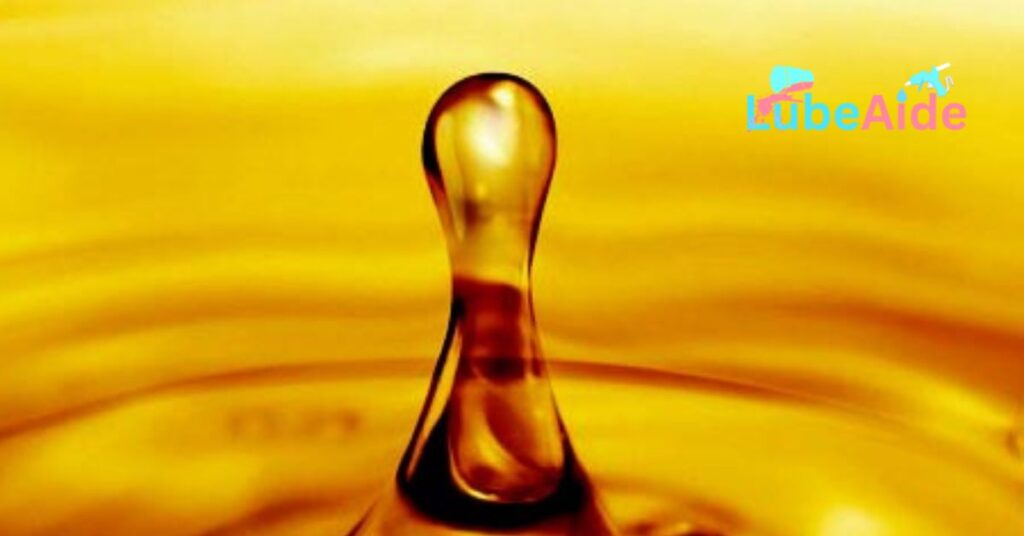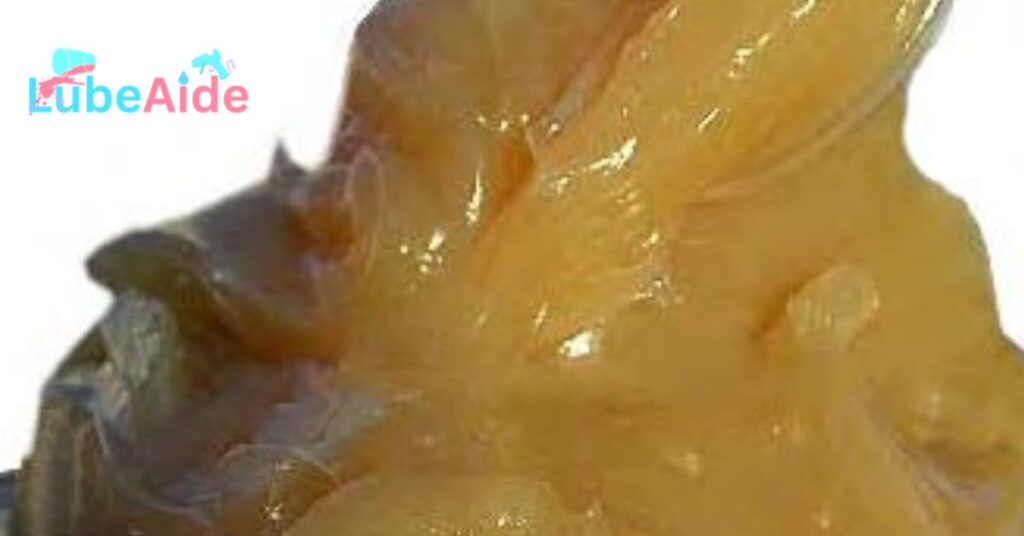Grease is a semi-solid lubricant that is commonly used to reduce friction and wear between two moving surfaces. It is typically made up of base oil, a thickener, and additives that enhance its performance characteristics. It is used in a wide range of applications, from automotive and industrial machinery to marine equipment and aerospace applications. Grease comes in a variety of types, each with its own unique properties and characteristics. Some common types of grease include lithium grease, silicone grease, polyurea grease, and molybdenum disulfide grease. Different Types of Grease are formulated to provide specific performance characteristics such as high-temperature resistance, water resistance, and extreme pressure protection.
The Basic Components of Grease
A detailed explanation of the three main components of grease: the base oil, thickener, and additives.

Base oil: This oil is the primary component of the lubricant. It is important to note that the base oil is responsible for providing the lubrication to the machinery, except in applications that are very slow or oscillating. To ensure optimal lubrication, the same principles used to select the proper viscosity grade in a fluid lubricant should be applied to selecting the base oil for grease lubrication. It is crucial to choose the appropriate base oil based on the machinery’s operating conditions, load, and temperature range to ensure optimal lubrication and prevent machinery failure.
Thickener: The thickener is a crucial component. The thickener works in conjunction with the base oil to create the solid to semi-fluid structure of the grease. Essentially, the thickener and base oil together act like a sponge holding water. Common thickeners used in grease lubrication include lithium, aluminum, calcium soaps, clay, and polyurea, either alone or in combination. Lithium soap is currently the most commonly used thickener in grease lubrication. By understanding the role of the thickener in grease lubrication, you can select the appropriate type of grease for your machinery, ensuring optimal lubrication and performance.
Additives: It plays a critical role in enhancing the lubricant’s performance and properties. These additives and modifiers can add new features to the grease or modify existing ones. Some common grease additives and modifiers include oxidation or rust inhibitors, polymers, and extreme pressure agents. These additives help to improve the resistance of the grease to high temperatures, reduce wear and tear, prevent corrosion, and enhance the lubrication of the machinery. By selecting the right type of grease with the appropriate additives, you can ensure that your machinery operates at optimal performance and experiences minimal wear and tear.
Classification of Grease

- Lithium Grease: Lithium grease is a type of lubricating grease that is commonly used in various applications such as automotive and industrial equipment. It gets its name from the thickener or grease base, which is made of lithium soap or lithium complex. Lithium grease is known for its excellent water resistance, high melting point, and good shear stability. Lithium grease is typically used in high-load applications such as bearings, bushings, and chassis, as well as other mechanical parts that require long-lasting protection against wear and tear.
- Calcium Grease: Calcium grease is a type of lubricating grease that contains calcium soap as its thickener. Calcium soap is made by reacting calcium oxide or calcium hydroxide with fatty acids. Calcium grease is commonly used as a general-purpose grease for applications such as bearings, chassis, and other automotive applications. It is also used in industrial applications, such as in the construction industry for lubricating equipment such as cranes, loaders, and excavators. The resulting grease is highly water-resistant, making it useful in a variety of applications.

- Polyurea Grease: Polyurea is a unique chemical compound that exhibits high-temperature stability, good water resistance, and excellent mechanical stability. Polyurea grease is a type of synthetic grease that is commonly used in various applications, such as automotive and industrial machinery. It is formulated by incorporating a polyurea thickener into a base oil along with other additives to enhance its performance properties.
- Complex Grease: complex grease are typically lithium or calcium-based soaps, which form a stable structure that holds the lubricant in place and prevents it from running off or being displaced by external forces. These soaps are also able to withstand high temperatures and pressures, which makes complex grease suitable for use in heavy-duty applications such as automotive and industrial machinery. It is formulated using a combination of base oils, thickening agents, and additives, which provide superior performance properties such as high load-carrying capacity, excellent thermal stability, and water resistance.
- Non-Soap Grease: Non-soap grease is a type of lubricating grease that is formulated using a complex mixture of synthetic and/or mineral oil base stocks, thickening agents, and additives. Non-soap greases can also provide better water resistance and corrosion protection than soap-based greases, making them ideal for use in marine and offshore environments.
- Silicone Grease: Silicone grease also has excellent water resistance properties, which makes it ideal for use in marine and offshore applications or in equipment that is exposed to frequent washdowns or wet environments. Silicone grease is a type of lubricating grease that is formulated using silicone oil and a thickening agent. It is a popular choice for use in applications where high temperatures, water resistance, and chemical resistance are required.
- Bentonite Grease: Bentonite grease is particularly well-suited for use in applications where high temperatures, heavy loads, and water contamination are common. Bentonite grease is a type of lubricating grease that contains bentonite clay as a thickening agent. Bentonite is a naturally occurring mineral that is known for its high surface area and ability to absorb water and other liquids.
- Clay-Based Grease: Clay-based grease is widely used in automotive and industrial applications, particularly in high-temperature and high-pressure environments where other types of grease may fail.
Choosing the Right Type of Grease- Factors to Consider
- Temperature and humidity: Consider the temperature and pressure of the equipment where the grease will be used.
- Load-carrying capacity: Choose a grease that can handle the load and prevent metal-to-metal contact.
- Water resistance: If the equipment will be exposed to water or moisture, choose a grease with good water resistance.
- Grease Compatibility: Make sure the grease is compatible with the materials used in the equipment.
- Consistency rating: Choose a grease with the right consistency for the application.
- Application method: Consider the method of application, such as manual or automatic, and choose a grease that can be applied easily.
- Environmental factors: Consider the environment where the equipment is located, such as high dust, chemical exposure, or extreme weather conditions.
- Operating speed: Choose a grease that can withstand the operating speed of the equipment without breaking down or separating.
- Pumpability: An important grease characteristic that enables it to be pumped using lubrication technologies such as automatic lubricator and its accessories.
- Service life: Consider the expected service life of the grease and choose one that can provide long-lasting protection.
- Manufacturer’s recommendations: Check the manufacturer’s recommendations for the type of grease to use in the equipment.
Advantages and Disadvantages of Each Type of Grease
Advantages:
Lithium-Based Grease:
- Good water resistance
- Good mechanical stability
- Good pumpability
Calcium-Based Grease:
- Good water resistance
- Good mechanical stability
- Good pumpability.
Clay-Based Grease:
- Good shear stability
- Good water resistance
- Good adhesion to metal surfaces
Polyurea-Based Grease:
- Good shear stability
- Good high-temperature performance
- Good mechanical stability
Silicone-Based Grease:
- Good high-temperature performance
- Good water resistance
- Good compatibility with plastics and elastomers
Disadvantages:
Lithium-Based Grease:
- Poor shear stability
- Not suitable for high-temperature applications
- Can cause corrosion of some metals
Calcium-Based Grease:
- Not suitable for high-temperature applications
- Can cause corrosion of some metals
- Poor shear stability
Clay-Based Grease:
- Can be difficult to pump at low temperatures
- Can harden and lose consistency over time
- Not suitable for high-speed applications
Polyurea-Based Grease:
- Poor water resistance
- Can be difficult to pump at low temperatures
- Limited compatibility with other types of grease
Silicone-Based Grease:
- Poor mechanical stability
- Poor shear stability
- Can cause seal swelling in some applications
Applications of Different Types of Grease:
Lithium-Based Grease:
- Automotive chassis
- Ball joints
- Wheel bearings
- Water pumps
- General-purpose industrial machinery
- Hinges
- Winches
- Sporting goods
- Garden tools
- Door tracks
Calcium-Based Grease:
- Agricultural equipment
- Construction equipment
- Industrial machinery
- Mining equipment
- Boat trailers, anchor chain reels, winches, pins.
Bentonite/clay Based Grease:
- High-temperature applications
- Steel mills
- Paper mills
- Heavy-duty equipment
Multipurpose Grease:
- Marine and offshore equipment
- Heavy machinery
- Industrial machinery
- Automotive components
Silicone-Based Grease:
- Electrical equipment
- O-rings
- Rubber seals
- Plastic components
Molybdenum (Moly) Grease:
- CV joints
- Ball joints
- Steering linkages
- Pivot pins
- Kingpins
- Worm and helical gears
- Splines
- Pinion gears
Polyurea Grease:
- Automotive
- Pulleys
- CV joints
- Aerospace equipment
- Marine applications
- Food processing equipment
- High-speed bearings
Storage, Handling, and Disposal of Grease
Storage:
- Store grease in a cool, dry, and clean area
- Store grease away from direct sunlight and heat sources.
- Keep grease containers sealed tightly to prevent contamination and oxidation.
- Store grease away from incompatible materials, such as acids and alkalis.
- Follow manufacturer’s recommendations for shelf life and storage conditions.
- Keep grease containers labeled with the type of grease and date of purchase.
Handling:
- Wear appropriate personal protective equipment, such as gloves and eye protection, when handling grease.
- Use proper lifting techniques when moving heavy containers of grease.
- Avoid inhaling grease vapors or coming into contact with grease on skin.
- Clean up spills immediately to prevent slip hazards and contamination.
Disposal:
- Dispose of grease according to local, state, and federal regulations.
- Do not pour grease down the drain, as it can clog pipes and cause environmental problems.
- Dispose of grease in a sealed container and label it appropriately.
- Consider recycling or reusing grease when possible.
- Follow manufacturer’s recommendations for disposal of used grease.
Final Words
In the end, there are various types of grease available for use in different applications and conditions. Each type of grease has its unique properties and advantages that make it suitable for specific applications.Choosing the right type of grease for your application is crucial for maximizing equipment performance and minimizing maintenance costs. Consult with a lubrication specialist or equipment manufacturer to determine the most appropriate type of grease for your application.
Related Topic:
- When to Use White Lithium Grease on Rubber Bushings
- How To Remove Grease From Hands And Nails
- Where to Put Dielectric Grease on Spark Plugs
- What Happens If You Don’t Grease Brake Pads
- Different Types of Grease
- Can You Use Dielectric Grease on Brake Caliper Pins
- White Lithium Grease vs WD-40
- Is Red and Tacky Grease Good for Wheel Bearings
- what happens if you don’t grease your ball joints


